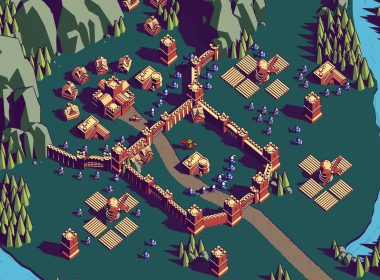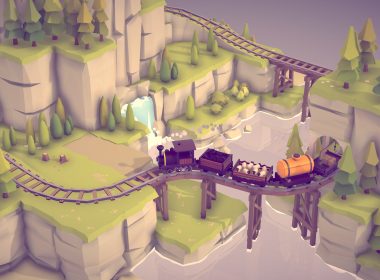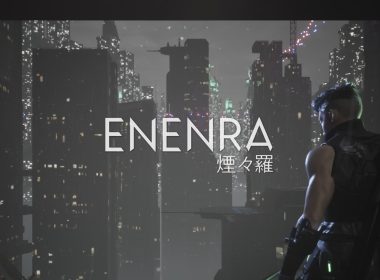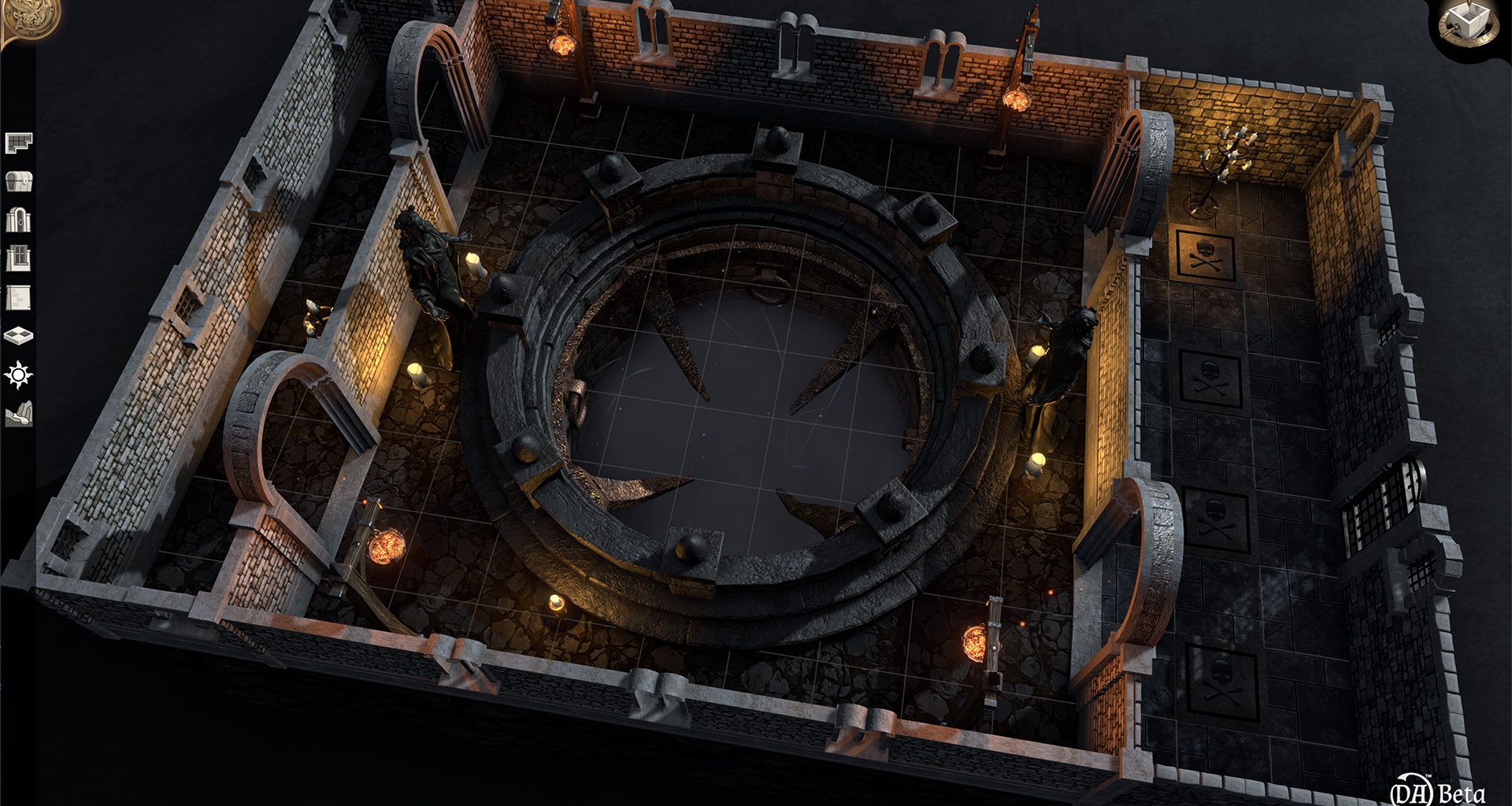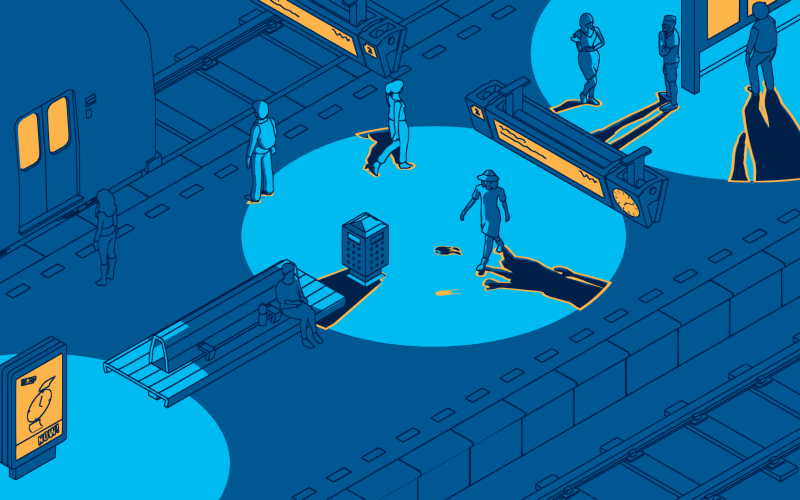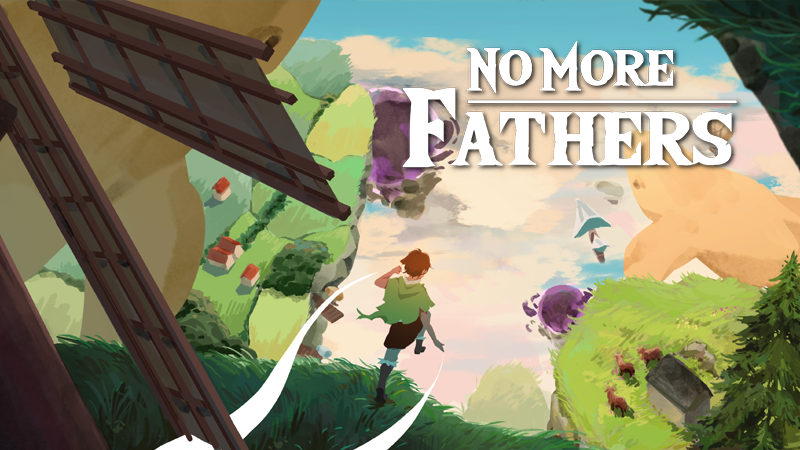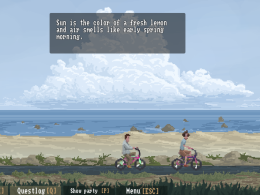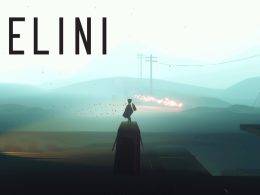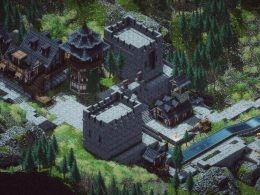After a successful Kickstarter campaign in 2021 and its first release in March 2022, Dungeon Alchemist positioned itself among the most interesting role-playing maps building tools out there today. Let’s learn something more about this very nice project with Wim De Hert and Karel Crombecq the founders of the “Briganti” team!
How would your describe Dungeon Alchemist in a very few words?
Dungeon Alchemist is a fantasy map-making application, that uses artificial intelligence to allow everyone to create high-quality maps, fast.
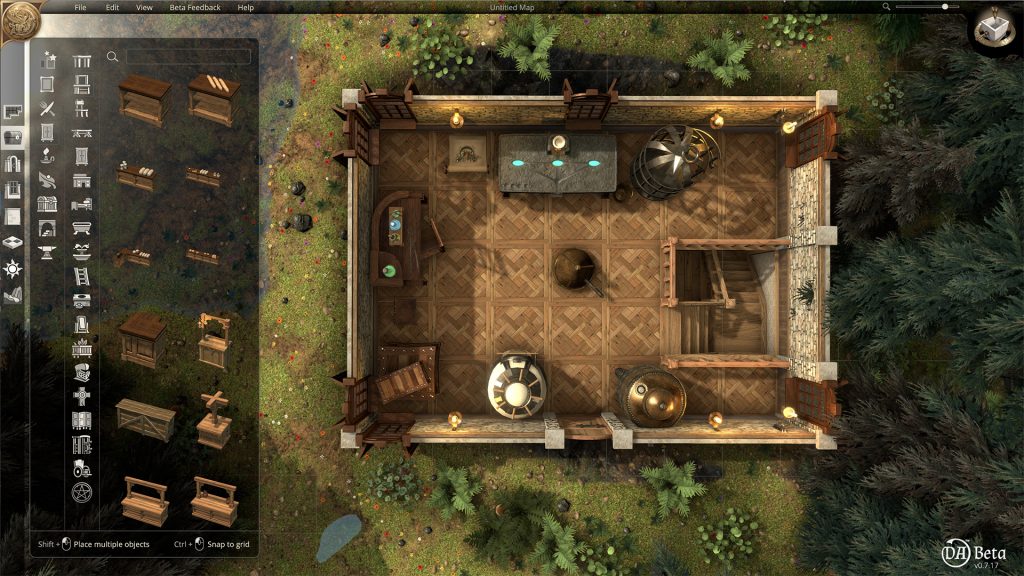
At IGWTF we all play table-top RPG and we loved Dungeon Alchemist from its first day on kickstarter. How did you start working on it?
For over twenty years, I’ve been an avid Pathfinder and Dungeons and Dragons player myself. Having a graphical background, I was the dedicated printer of maps that came along with the adventure paths, and more often than not, these maps were poor-quality, humongous and completely unprintable. Making maps yourself was a tedious and repetitive job. Most of the time was spent drawing the same walls, the same doors, the same floors,… By the time you were two rooms in, you were like to be bored out of your skull. I’ve always had a lively interest in AI, and figured it would open up entirely new options for roleplaying. At the time, I was working with Karel Crombecq, one of the leading Flemish game developers, on a puzzle game called BoaBonanza. He has a doctorate in machine learning, and together we were able to quickly put together a working proof of concept.
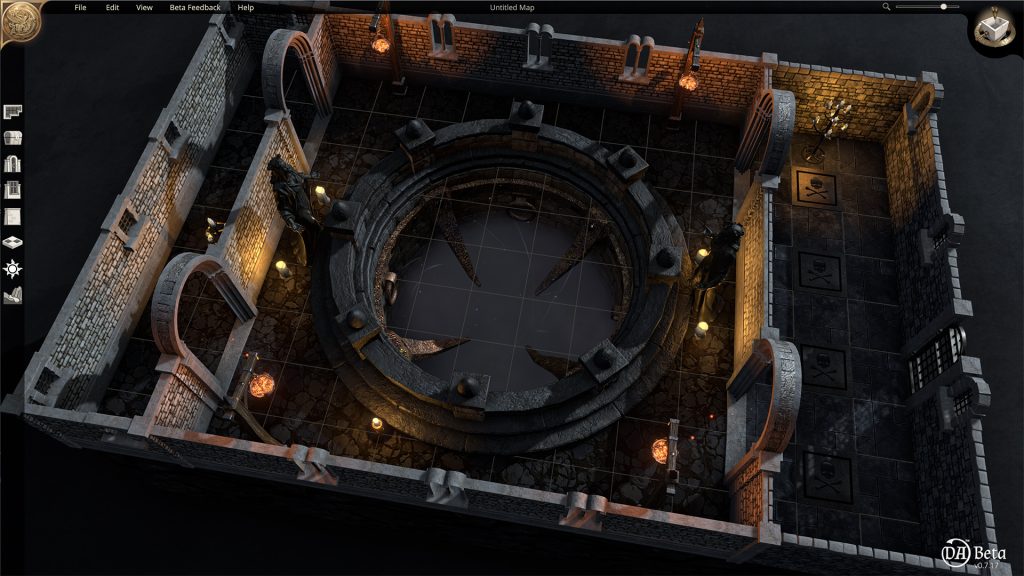
Could you tell us something more about your team, Briganti? In Italian, this word means “Brigands”. How did you end up with this name?
At this point in time, Briganti is employing one more person for the administration. We’re working with freelancers on a daily basis for asset creation, community management, and development. During the Kickstarter, it quickly became apparent we needed a legal entity for us to work in. We founded Briganti over the course of two days, as everything had to go insanely fast. Our counsel at KPMG, the Belfius bank and the notary have been a tremendous help in getting things done. We chose the name Briganti for its mythical meaning, referring to the snake goddess of arts and poetry. The ouroboros of our logo combines the snake with a visual reference to quantum entanglement, as we wanted to have the aspect of AI represented, too.
Is there any particular “twist” or any aspect that you think makes Dungeon Alchemist unique?
We’re the first to combine AI and fantasy map-making at this level, and the ease of use and speed makes Dungeon Alchemist accessible to all.
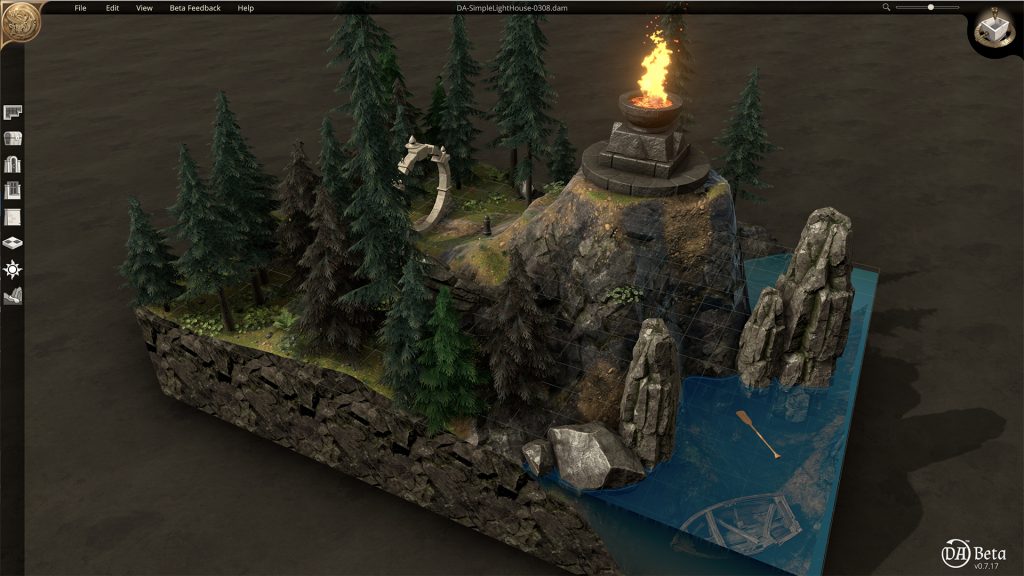
How the role-playing games community is reacting to your title? it sounds like a game-changer for every map makers.
Creating Dungeon Alchemist seems to have inspired a tremendous amount of people. We started out as a simple map maker, but the features we put in are now such that Dungeon Alchemist has the potential to be much more than that. There has been an overwhelmingly positive and enthusiastic response, and we intend to take that along in future development and partnerships.
How did you achieve such a good result for the AI behind your building design tools?
From the get-go, it was very clear to us that rooms and interiors followed a very subtle, inherently human logic. We had to train the AI to decorate rooms like a human would: start with walls, doors and windows, then place the big main objects of the room and then decorate the rest of the room around that. The AI learns these “interior design” rules by looking at examples for each room and studying how objects are placed relative to the walls, doors, each other and so on. It also looks for patterns (for example: “pillars are placed in a regular pattern”) and tries to apply them. All these things serve to make the AI build believable maps, but it’s been a long process of trial and error, subtle tweaks and minor improvements to get where we are now.
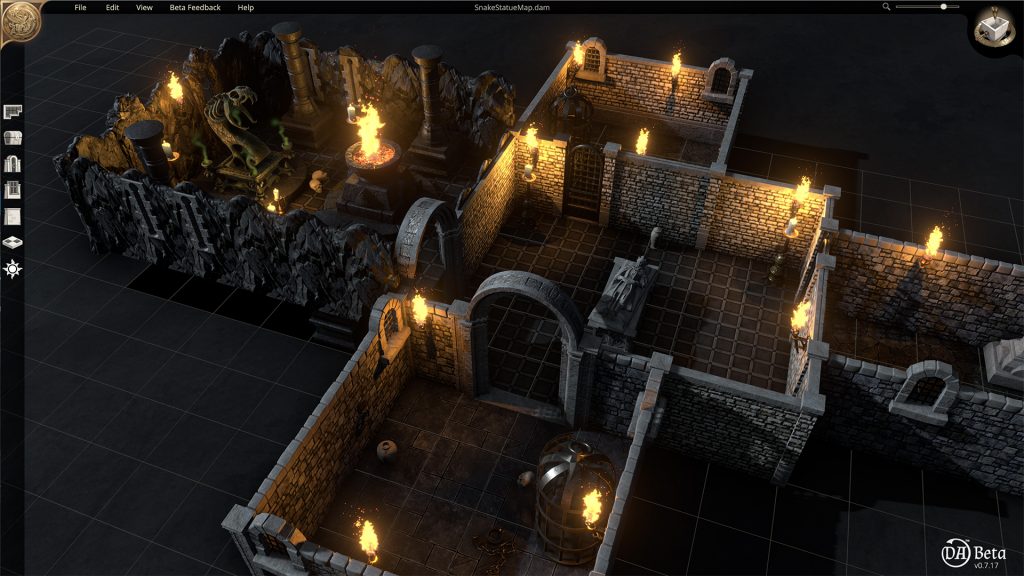
Are you planning a virtual reality integration?
We often refer to Dungeon Alchemist as a map making application, first and foremost. That means we look to third parties to integrate extended functionality. While we will likely not implement VR ourselves, we welcome all and any collaborations in the future.
We’re this close to releasing the Abandoned Ruins #DungeonAlchemist update, and we completely ruined EVERYTHING! ? Here’s the new objectbrush in action. ? #screenshotsaturday #indiegamedev #ttrpg https://t.co/GOh7LdRHJo @wimdehert @KarelCrombecq pic.twitter.com/cR864jF4VS
— Dungeon Alchemist (@DungeonAlchemi1) May 28, 2022
How are you organizing the work with your team?
Ever since the start of the Dungeon Alchemist project, we’ve been maintaining an active Slack communication. Daily tasks, milestones, backlogs and bugs are kept current on several Trello boards. Some of these boards are used by Karel and me exclusively, others are shared with the creators, accounting or developers. A lot of our communication is shared over the Discord server, where we try to keep in touch with the members of our community. Meetings are usually held over Google Meet, which has really interesting screenshare possibilities we use on a more or less daily basis.
How did you go about setting the price-point for Dungeon Alchemist?
Deciding on the final retail price for Dungeon Alchemist was no easy task. We wanted to make sure we could deliver on the promised Kickstarter stretch goals, keep the application running for a very long time and yet still be as accessible and widely adapted as possible. Neither Karel nor me are very partial to a subscription model, and we settled on a somewhat different approach. Users pay just once for the basic platform, and all unlocked Kickstarter content will be added for free over time. To make up for the slightly higher price-point, updates over time to basic functionality and features will be at no extra charge, and users have very lenient terms of use to benefit from the content they create commercially.
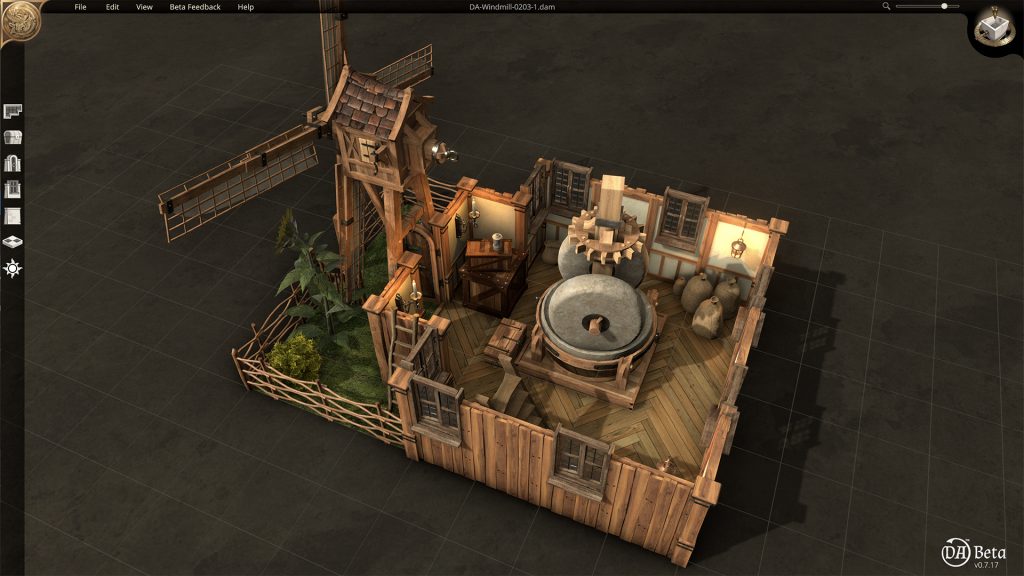
What are the future plans for Dungeon Alchemist?
First off, we will deliver on all the stretch goals and content we promised. In the mean, we will keep adding additional functionality and improvements. We have a voting system in place for users, where everyone can help us to decide on priorities. There’s tons of exciting new options coming up, with first person view, animated exports,…
